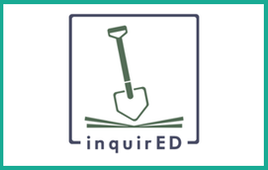
Overall, inquirED offers an excellent curriculum that helps support the development of problem-solving, critical thinking, and presentation skills, while also being aligned with the most common national standards and frameworks.
Inquiry Journeys from inquirED on Vimeo.
In general, inquirED is built around an inquiry model that starts with a compelling question, then asks students to move through a rigorous investigation where they explore that question, and culminates with students developing some type of argument or action which they will share with stakeholders:
For those familiar with inquiry-based learning and problem-based learning, you know they come in many different flavors and types. For inquirED, they have built their curriculum around what they label as “authentic inquiry” which centers around an intentionally-designed curriculum and student-centered instruction:
As students move through the curriculum, from question to investigation to culminating action, they will also engage in a variety of steps.
Students explore the topic by generating questions and researching concepts. They construct knowledge by prototyping solutions and designing final products. They present their findings and describe their learning processes to audiences and stakeholders. And to wrap it all up, students end with reflection activities that help them identify strengths and areas for future growth.
This inquiry model is used throughout their curriculum, which is divided into 7 different “Inquiry Arcs”.
For grades K-2 the arcs focus on the topics of “Self & Others”, “School & Family” and “Community”. For 3-5, the focus is on “Interconnections”, “State & Local Perspective” and “Origins of the United States”. Finally, for 6th grade, the focus is on “Ancient Civilizations”.
Overall, inquirED is meant to act as a core curriculum, with each inquiry arc containing 3 units around the theme of the inquiry arc.
For those teachers interested in incorporating additional inquiry units into their curriculum using the inquirED model, the team also offers a product that allows teachers to design their own inquiry units using the inquirED platform and pre-built lesson plans, which can be applied to any topic a teacher, school, or district might want. This is what inquirED calls their “Inquiry Innovators” product. Inquiry Innovators is excellent for teachers looking to expand their inquiry offerings, however this review will primarily focus on the K-6 social students curriculum.
For the K-6 social studies curriculum, everything begins with the online teacher dashboard.
This is where teachers create and manage their curricula, access training and support resources, and track student progress through the inquiry arc(s) they are working through.
It’s important to note that inquirED is only a teacher-facing platform. In other words, students do not have (or need) access to the platform.
This way, inquirED can be rolled out in a variety of technology-enabled environments, even ones where students don’t have regular access to devices (although regular access is beneficial, particularly for the research components). Everything that the students need is provided within the curriculum and can be printed out and shared by the teachers. For videos and digital resources, these could be shared out via the teacher’s computer/projector.
To begin, teachers can navigate to the Curricula tab and create a new curriculum. Teachers can then select the specific inquiry arc (described above) they want to work with. An overview of the arc is provided, along with example inquiry questions that could be used.
Once teachers have selected the specific arc they want to work with, they then select the inquiry question they would like to use as well as the inquiry product that students will be creating as a culminating activity.
In terms of the inquiry product, there are a variety of options for teachers to choose from, depending on what best meets their needs and resources. Teachers can filter inquiry products by complexity, type, and by group size. Plus, each of these steps along the way includes a brief video tutorial/overview to help teachers gain a quick understanding of what to look for in each of these steps.
Once teachers have selected their inquiry arc, question, and project, they can then customize the lessons they want to use throughout the inquiry process.
As mentioned above, each inquiry arc is broken down into separate phases:
Prepare (for the teacher) → Explore → Construct → Present → Reflect.
During the Prepare phase, inquirED guides the teacher through everything they will need to review and get ready before the unit begins.
For the remaining phases, the teacher can specifically choose which lessons they would like to use. For each phase, there are “core” lessons, which cover foundational topics and ideas, and “extension” lessons that can be added depending on the time, resources, and/or applicability.
All lessons include an overview, a list of objectives, a collection of formative assessment options, a list of things the teacher and students need to do the week prior, a list of materials and prep, and a very detailed guide for how the lesson couple be implemented. In short, these lessons are highly scaffolded and structured.
In my personal work and research with inquiry-based learning, this type of pedagogical approach can be difficult and overwhelming to implement. This holds true not just for teachers who are new to inquiry-based learning, but even for experienced teachers as well.
Inquiry-based learning is an incredibly dramatic shift away from traditional pedagogical approaches, and the vast majority of research on implementing these types of approaches suggests that teachers need significant amounts of scaffolding and support.
As a result, it’s wonderful to see how much support and scaffolding have gone into these lessons and inquiry arcs for inquirED. Not only can teachers rely on the specific implementation guides and detailed structure that the inquirED team has laid out, but teachers can also use the built-in video tutorials for support as well.
Plus, inquirED includes a Development tab where teachers can participate in an entire course designed to support educators in the implementation of inquiry-based learning. This course is meant to be worked through in small groups or PLCs, and is an absolutely wonderful resource for supporting the integration of inquiry-based learning into the classroom.
And in addition to all of this online support and training, inquirED can also come out to your school or district to provide in-person training.
Finally, in terms of pricing and licensing, you can contact their team for a quote and they typically offer site licenses at the school or district level.
Overall, I think inquirED offers a fantastic curriculum. So often when we see curricula for inquiry-based learning or problem-based learning, they are centered around STEM subjects and not seen in the humanities. However, implementing inquiry-based learning in the social sciences can be a wonderful way to emphasize critical thinking, problem-solving, and a whole host of other important 21st century skills. Plus, students absolutely need to be able to think critically about the types of topics and issues that are prevalent throughout the social studies curriculum.
In addition to the social studies focus, the amount of support, scaffolding, and training that is provided as part of the inquirED curriculum is exemplary. Asking teachers to incorporate inquiry-based learning in the classroom is a huge pedagogical shift and requires significant support and scaffolding. Fortunately, inquirED has done an excellent job providing these resources.
If your K-6 school or district is looking for a way to begin implementing inquiry-based learning in the social studies classroom, or wanting to expand on existing inquiry options, inquirED is a wonderful option to consider. To learn more about inquirED and inquiry, be sure to sign up for one of their upcoming webinars: https://www.inquired.org/inquiredwebinars
I was not compensated for writing this review.

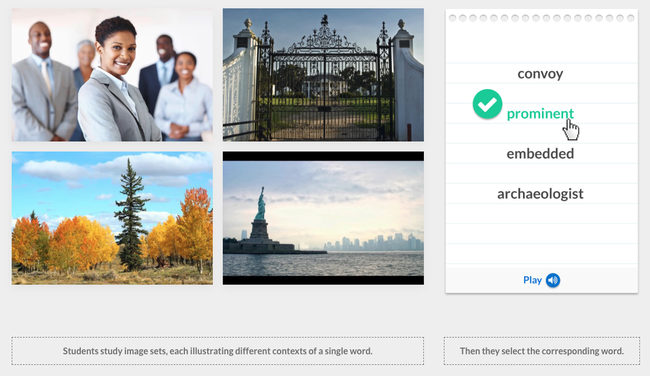
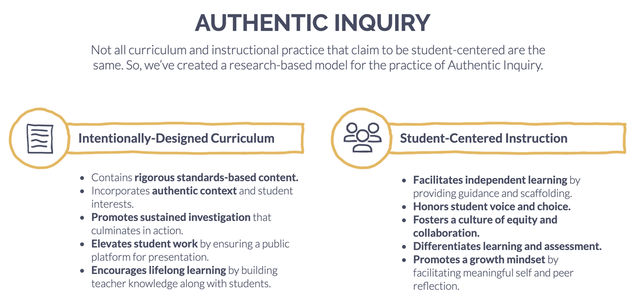
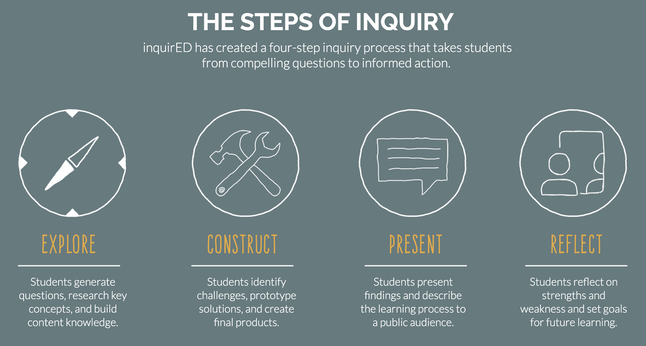
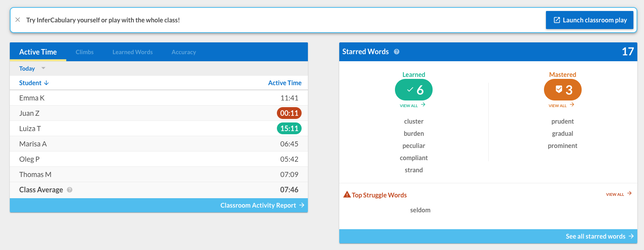
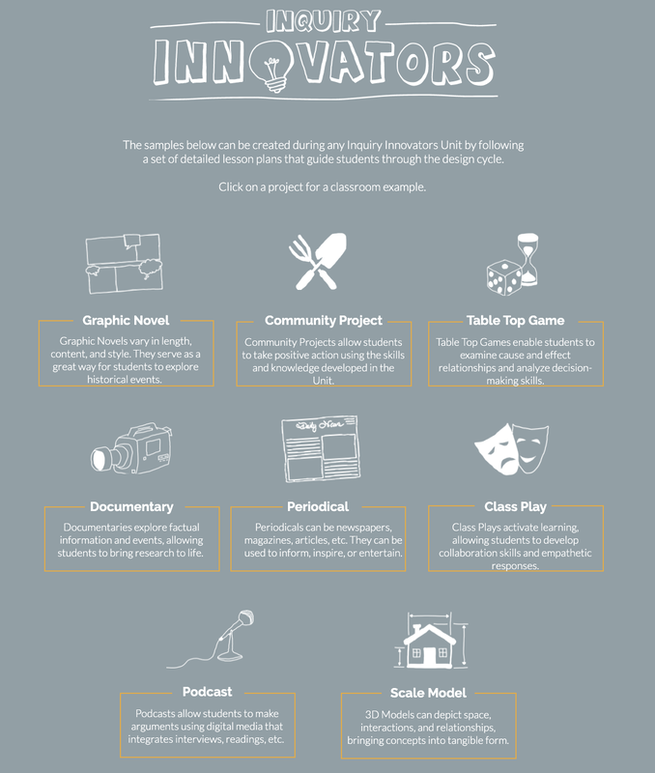
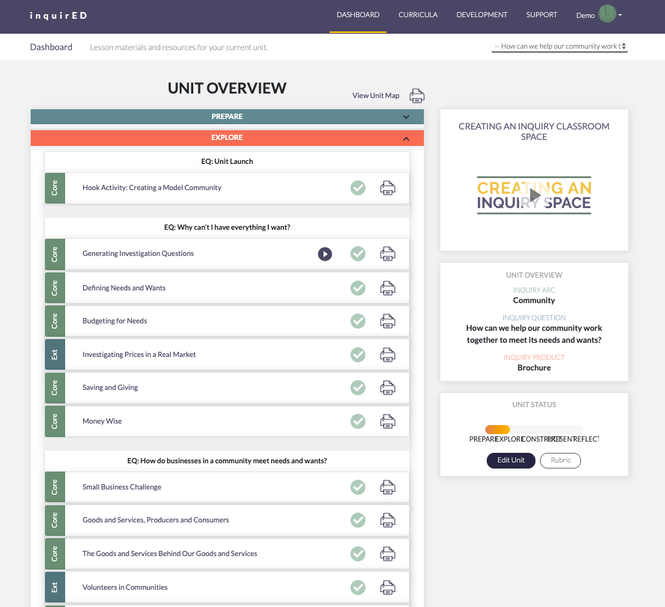
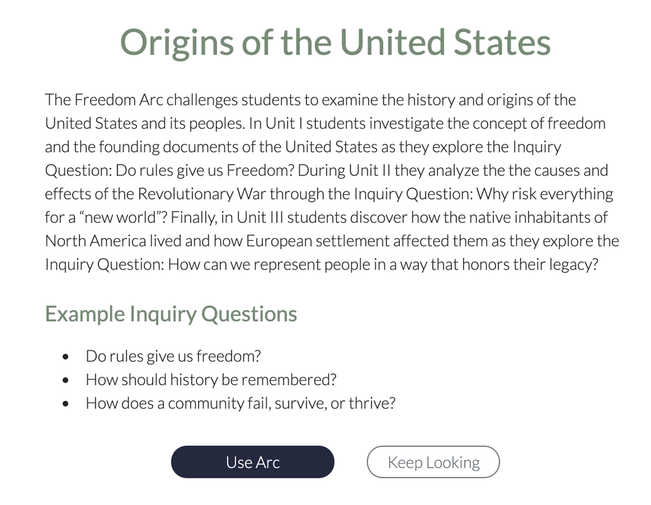
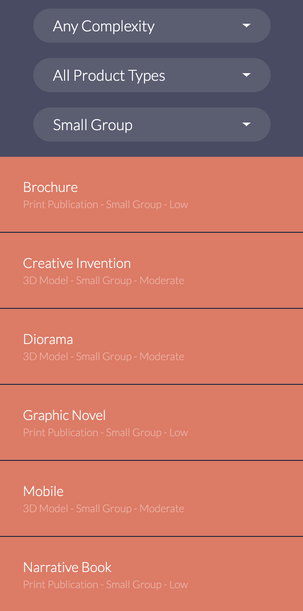

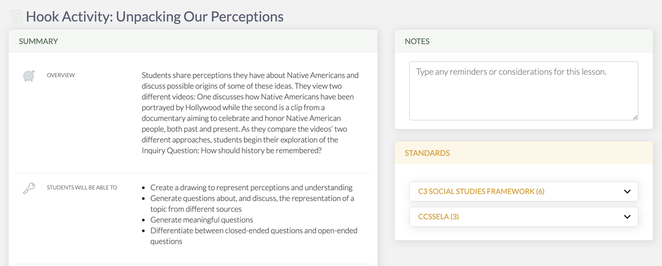
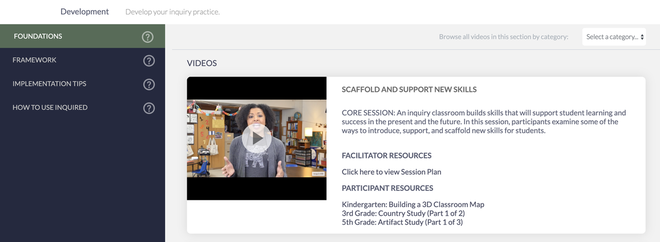



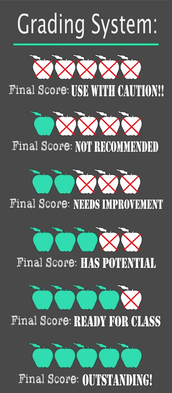





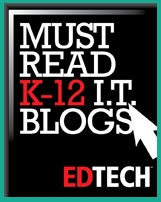




 RSS Feed
RSS Feed
